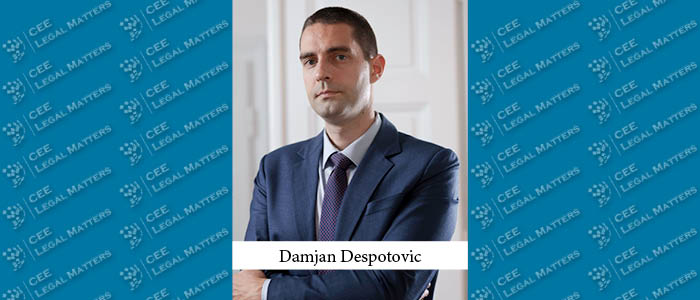On October 10, 2024, the Serbian Commission for the Protection of Competition (Commission) launched an investigation against four large retail chains – Delhaize Serbia, Mercator-S, Univerexport, and DIS – over possible anti-competitive practices, i.e., alleged retail price-fixing and coordination. The four major retailers account for over 50% of the Serbian retail market.
The decision to open an official investigation was preceded by a sector analysis conducted by the Commission for the period between 2018 and 2022, which revealed suspicious patterns and trends in the market in terms of retail prices, profits, and margins. This, in turn, prompted the Commission to conduct a more in-depth investigation of the market and the business practices of the companies involved, culminating in unannounced inspections (dawn raids) at the business premises of the four retail chains, as well as of price comparison application Cenoteka – a third party in the proceedings. The Commission also collected evidence from other retailers as well as relevant suppliers (producers, importers, and distributors).
In particular, the Commission found that price increases during the period observed were significantly higher than the rate of inflation, while the parties’ revenues and profits also increased significantly. The fact that prices and revenues increased faster than costs is underlined by the fact that the parties’ gross margin rose from 19% in 2016 to 38% in 2023.
The Commission also analyzed the price evolution for 35 selected products over the last five months, concluding that the parties maintained almost identical prices for the observed products in their retail outlets, although their upstream prices were not the same.
The Commission also noted other facts indicating a lack of competition between the parties. Specifically, a new “player” entered the market in 2018, which led to the assumption that there would be a drop in prices due to increased competitive pressure. However, it turned out that the opposite was the case. Finally, based on a comparison of prices of specific basic products (mostly food products), it was determined that another retailer (not encompassed by the proceedings) offered significantly lower prices, in spite of the fact that it had the least favorable purchase terms from suppliers.
The Commission concluded that the findings indicate a lack of competitive pressure, which is enough to reasonably assume that the parties are engaged in anti-competitive conduct, such as restrictive agreements aimed at price coordination or tacit collusion with similar effects.
Shortly after the Commission’s announcement, the Higher Public Prosecutor initiated a criminal investigation against the parties due to suspicions of criminal offenses.
This scrutiny of major retailers comes amid widespread concerns that retail prices of basic goods are inflated – a sentiment echoed by high-ranking politicians who have acknowledged the issue and pledged action from authorities.
As we await the outcome of the proceedings, it’s worth noting that in past cases where the Commission sanctioned restrictive agreements for price coordination, the fines imposed were often far below the maximum threshold of 10% of a company’s annual revenue. This raises concerns that such penalties may not serve as adequate deterrents for practices that are highly profitable for offenders but detrimental to consumers. If the Commission concludes that the parties were indeed engaged in price-fixing in this particular case, the legal conditions will likely be met for imposing much higher penalties (closer to the legal maximum) given the magnitude, duration, and impact of the alleged anti-competitive behavior. However, similar circumstances in previous cases resulted in the Commission being relatively lenient with penalties. With the stakes even higher this time, the Commission is likely to face substantial pressure from various stakeholders.
It will also be interesting to see if the investigation uncovers any direct communication between the parties regarding pricing or other forms of coordination. Importantly, express agreements are not necessary to prove a violation of competition law – tacit collusion or coordinated practices, even without formal agreements, can have the same anti-competitive effects and legal implications.
By Damjan Despotovic, Partner, DNVG Attorneys
This article was originally published in Issue 11.10 of the CEE Legal Matters Magazine. If you would like to receive a hard copy of the magazine, you can subscribe here.




